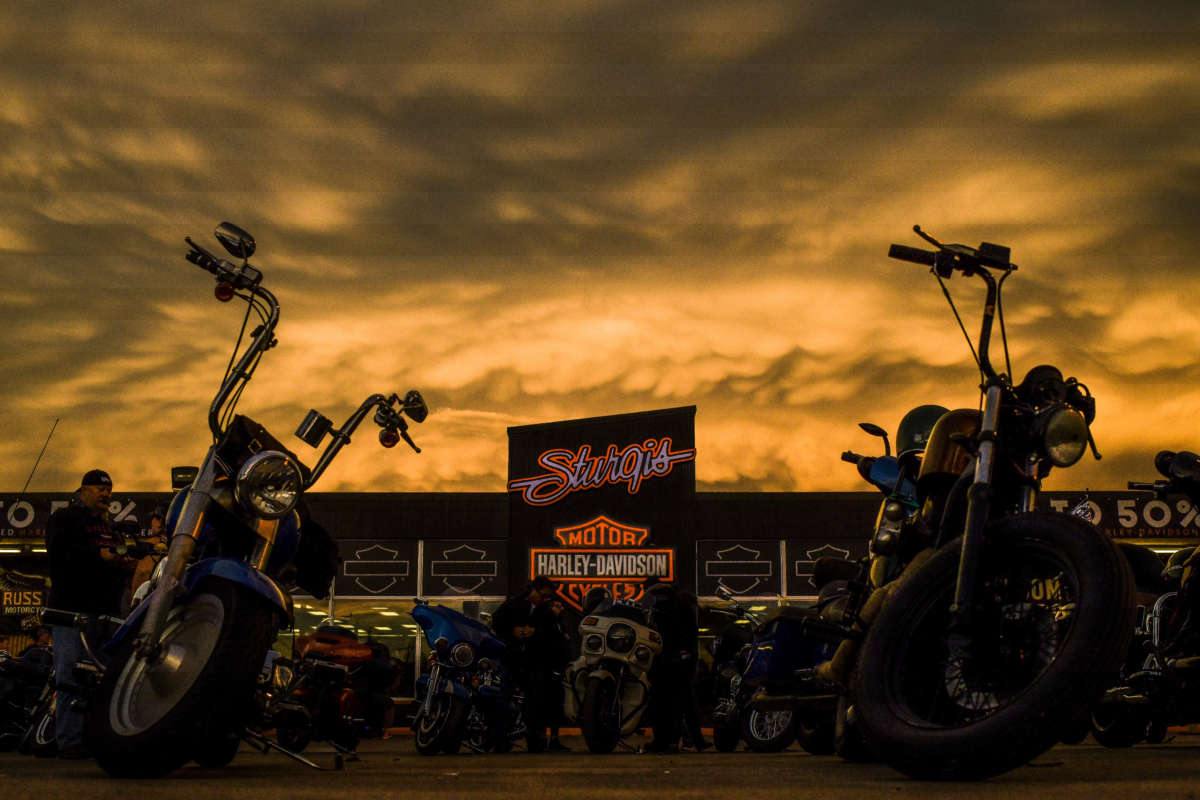Support justice-driven, accurate and transparent news — make a quick donation to Truthout today!
The Sturgis, South Dakota, motorcycle rally that took place early last month is a coronavirus “superspreading event” that will likely result in more than $12 billion in public health care costs, according to researchers who documented the annual event.
The rally, which took place from August 7 to 16, drew in more than 365,000 vehicles this year. According to local reports, most participants did not wear masks or practice other social distancing measures to prevent the spread of COVID-19.
Likely because of the lack of adherence to such standards, at least 260 cases of coronavirus across 11 different states have been positively connected to the event, with one individual identified as having died from the disease after being at Sturgis. It’s probable that number will increase in a huge way in the days and weeks to come.
Researchers from San Diego State University’s Center for Health Economics & Policy Studies, working alongside the German-based IZA Institute for Labor Economics, analyzed cellphone data from “non-residents” at the rally to examine foot traffic at a number of establishments nearby, including bars, retail shops, hotels, and more. They found that attendance at these areas of interest “rose substantially” when compared to days before the rally, in spite of the possibility of spreading infections.
The study concluded that the event will eventually be linked to about 267,000 cases of coronavirus in the U.S. when all is said and done. Based on the understanding that the average cost of care for a person with COVID-19 is around $46,000, researchers determined that the motorcycle rally will likely result in $12.2 billion in public health costs due to spread of the virus.
The high number of individuals likely to have been infected with coronavirus makes Sturgis a “superspreading event” — an event in which cases are transmitted at a much higher rate than they happen among the general public.
A number of superspreading events that have been documented in the months since the pandemic hit the U.S. have happened at large gatherings of individuals, such as church choirs and big family birthday parties where dozens of participants have ended up contracting coronavirus.
“I tend to think of it as this: the vast majority of people may not infect any other people, and some people in certain situations infect a lot of people,” Abraar Karan, a physician and public health researcher at Harvard Medical School, told the BBC. “One person may infect 10 people, or 15 people or 20 people” at such superspreader events.
Sturgis is unique, however, in that it was a multiday event with hundreds of thousands involved, which could make it the largest superspreading event in the country so far.
Although not conclusively connected to the event itself, South Dakota saw a substantial upswing in its coronavirus case count in the weeks after the Sturgis rally was held. Indeed, the five-day average of new cases identified from August 26 to 30 was more than two times higher than it was from August 12 to 16.
As of Tuesday, nearly 6.5 million cases of COVID-19 have been identified in the United States, with more than 193,000 having died from the disease so far.
Media that fights fascism
Truthout is funded almost entirely by readers — that’s why we can speak truth to power and cut against the mainstream narrative. But independent journalists at Truthout face mounting political repression under Trump.
We rely on your support to survive McCarthyist censorship. Please make a tax-deductible one-time or monthly donation.
